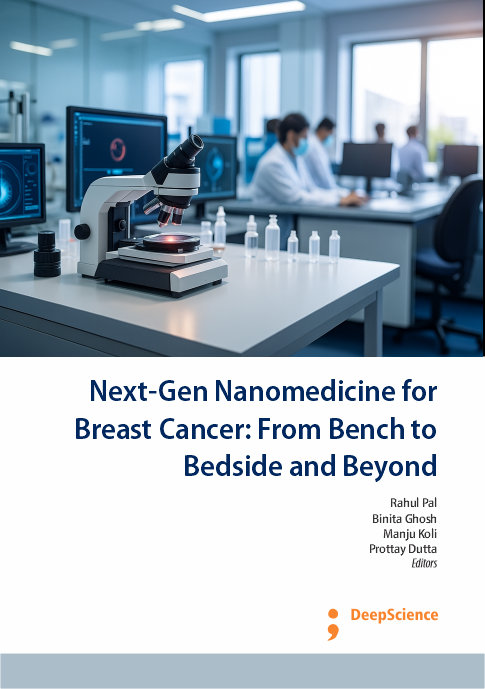Exosomes and Biomimetic Nanoparticles: Natural Nanocarriers for Breast Cancer
Synopsis
Breast cancer is one of the leading causes of cancer associated morbidity worldwide as conventional therapies are often limited by drug resistance and metastatic spread. These challenges observed with conventional therapies underscore the need of innovative systems for drug delivery that can overcome the challenges associated with conventional therapies. Exosomes are derived from cellular endosomal pathways and act as natural nanocarriers and have emerged as a promising approach for targeted therapy because of their inherent biomimetic properties and unique biogenesis. These have the ability of cell-cell communication and exhibit organotropism which makes them superior candidates in delivery therapeutic agents in oncology. Biomimetic nanoparticles are inspired from exosomes, but they offer several advantages in cancer therapy like improved tumor penetration, dual targeting capability, and reduced off-target as they are made of advanced design strategies. Various studies from literature survey indicate the superiority of exosomes over synthetic nanoparticles because of targeting specificity and biocompatibility, though challenges related to scalability and standardization persist. Recent advancements in oncology have led to the development of exosome-based delivery systems of nucleic acids and chemotherapeutic agents and multimodal approaches integrating photothermal and immunotherapy modalities. Preclinical studies related to exosome-coated porous silicon nanoparticles have demonstrated significant potential and several clinical trials are underway. Major challenges are related to the large-scale production, isolation procedures and regulatory guidelines. This chapter provides a comprehensive overview on exosomes and biomimetic nanoparticles as natural nanocarriers for breast cancer therapy.













